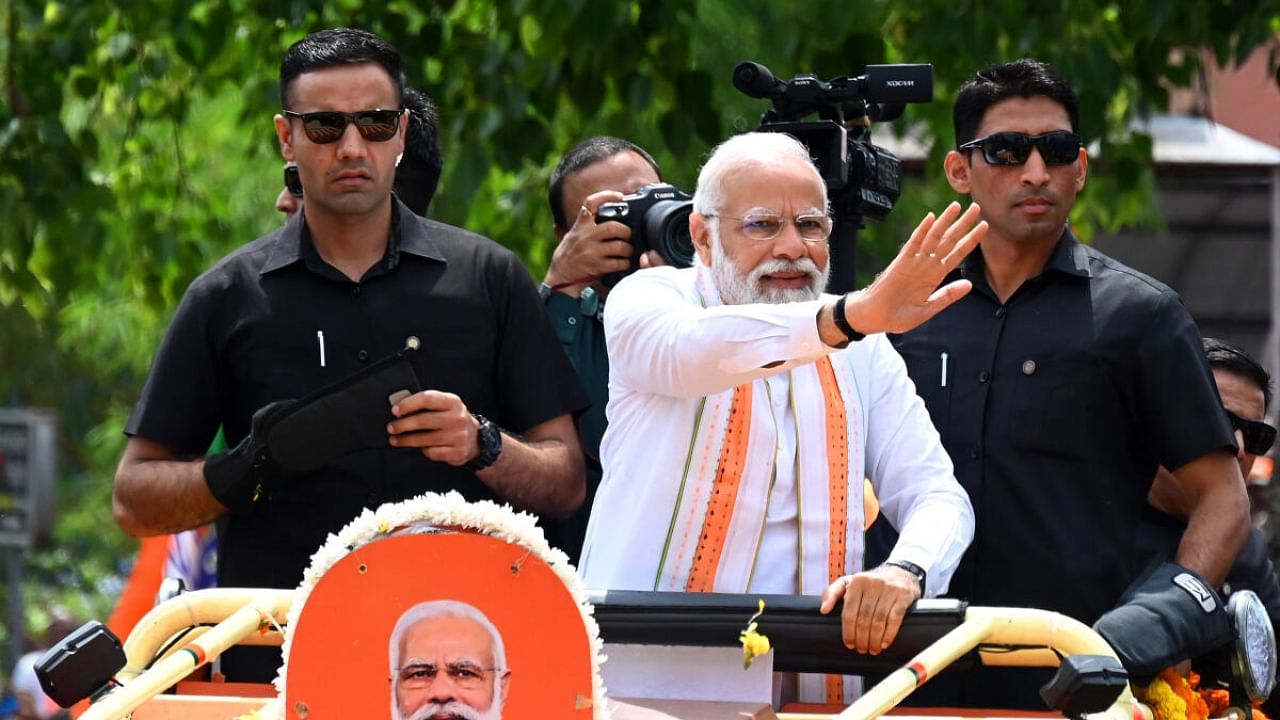
Prime Minister Narendra Modi’s appeals on Twitter for the “bright future” of Karnataka and the Congress’s complaint to the Election Commission against him on Tuesday renewed focus on the absence of any law to prohibit the use of social media for campaigning during the “silence period” of 48 hours before the start of polling.
The Congress has lodged a complaint with the Election Commission, alleging that the prime minister’s appeal on Twitter for the voters of Karnataka was a “blatant violation” of the Model Code of Conduct (MCC) and the provisions of the Representation of People’s Act 1951. The EC, however, is unlikely to take any action against Modi as the sources in the poll panel pointed out that appeals made outside the polling area or on social media did not come under the ambit of the existing law.
The commission, according to the sources, took note of the fact that Section 126 of the Representation of People’s Act 1951 (the RP Act 1951) neither prohibited the use of social media or intermediaries to make appeals to voters, nor barred the display of campaign materials outside the polling area. It restricted the public display of election matters in the polling area during the “silence period”.
Karnataka goes to polls on Wednesday and the campaign silence period started at 6 pm on Monday. It would end after the conclusion of the polls.
The EC had in 2019 proposed changes in the law to bar the use of social media for making political appeals during the silence period. But the government has not yet acted on the proposal and has not yet moved to amend the law.
The EC had in 2019 noted that the task of maintaining campaign silence during the last 48 hours before the conclusion of polling was “becoming increasingly onerous in the light of the increasing influence of digital media”.
It had underlined that apart from the regulation by law and EC instructions; the resolve, proactive support and sustained effort by all stakeholders, including political parties, media, civil society organizations, academia and educational institutions, the youth and the citizens, would be necessary to pre-empt efforts to influence voters during the campaign silence period of 48 hours.
The EC had constituted a committee following a controversy over Congress President Rahul Gandhi's interview aired by some TV channels on December 13, 2017 – just a day before the second phase polling for the election of the Gujarat State Assembly was scheduled to be held. The EC had served a notice to Gandhi for flouting Section 126 of the R.P. Act 1951.
The poll-panel had noted that multi-phase elections might result in a situation in which even when the 48-hour prohibition on campaigning would be in force in some areas, electioneering would be continuing in other areas. Besides, due to the advancement of communication technology and the rise of social media, even an individual can broadcast or telecast “any election-related matter” from any corner of the world which could be received by the people of any polling area within 48 hours when the prohibition on campaigning would be in force, the EC had observed in 2019.
After the EC had served the notice to Gandhi, the Congress had demanded that the poll-panel must also act against Modi for violating the Model Code of Conduct by asking people to vote through social media on the first day of the polling in Gujarat on December 9, 2017.
The poll-panel however had not acted against the Prime Minister and had rather withdrawn the notice served to the president of the Congress.
